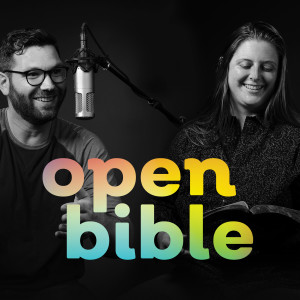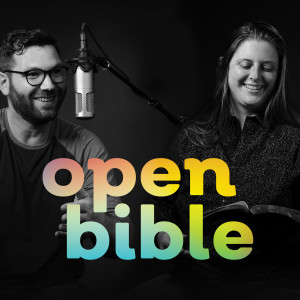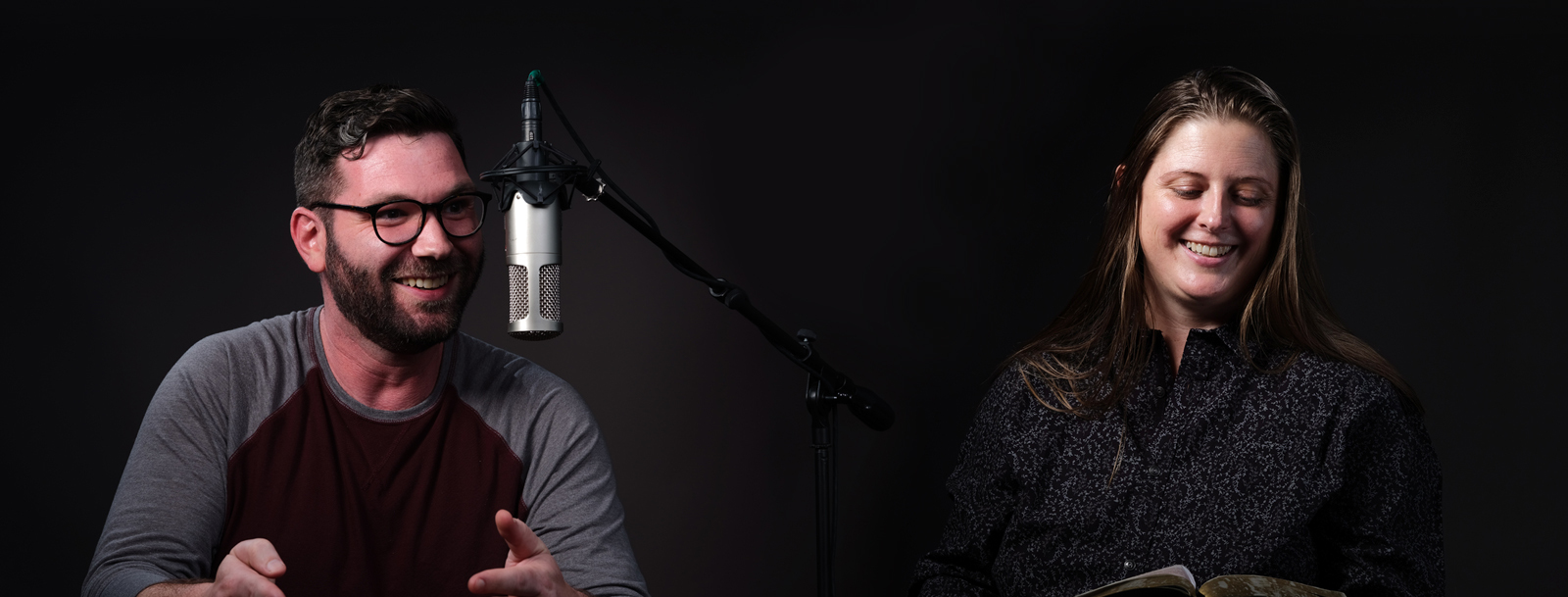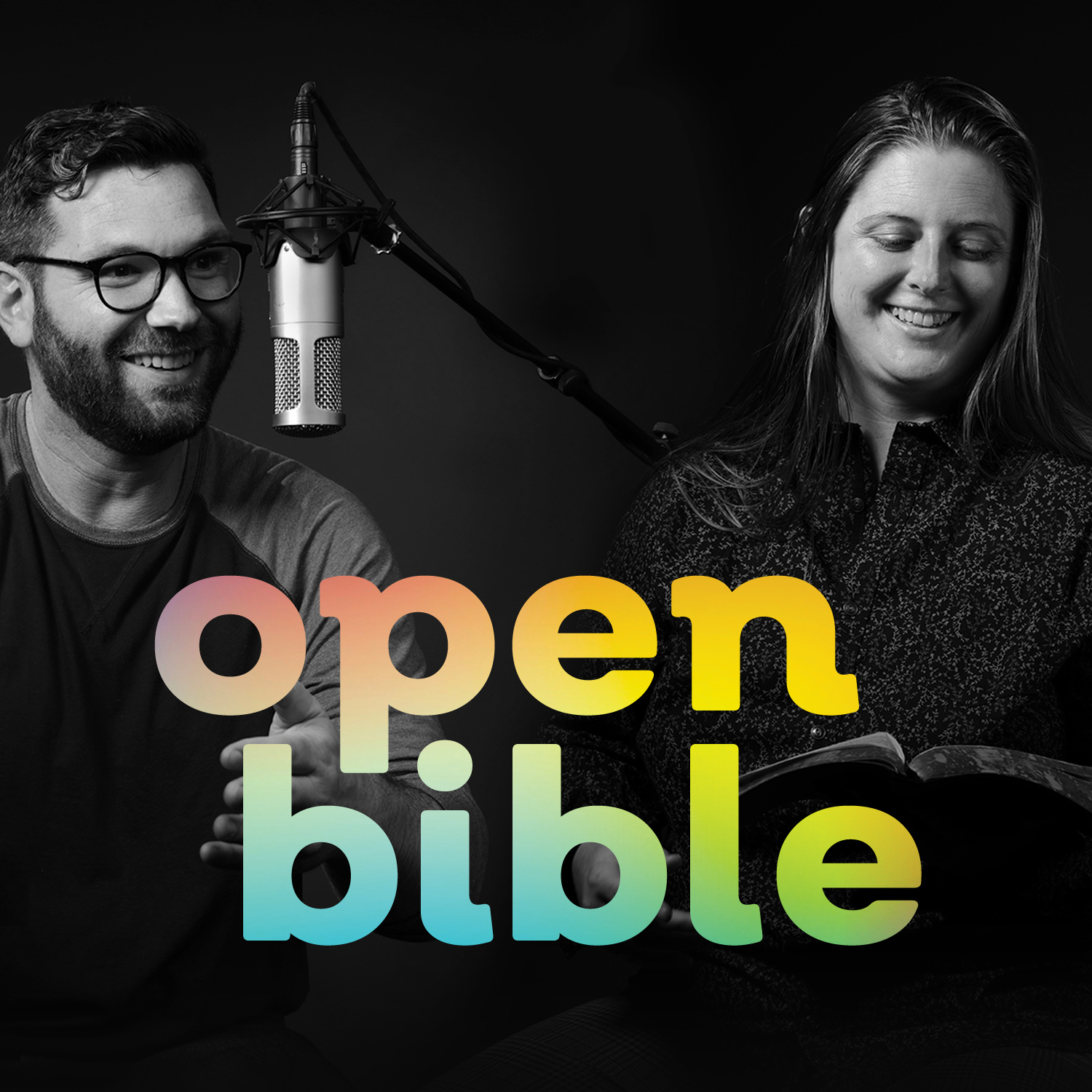Episodes

Wednesday Mar 11, 2020
#05 - Leviticus is the Key to Everything w/ Susan Cottrell
Wednesday Mar 11, 2020
Wednesday Mar 11, 2020
This week we get down and dirty with the sexual ethics of Leviticus. What was the purpose of these laws? Do they apply to all homosexual behavior? What did these laws accomplish? How do they fit into the rest of the Old Testament?
We were fortunate to have Susan Cottrell on our episode this week, sharing her own story of transformation when her daughter came out to her. You’ll learn about how her church friends reacted and the decisions she had to make. Ultimately, she counts herself blessed that her daughter came out to her.
Susan now has a thriving ministry helping other parents navigate the challenges she faced herself. She’s the founder and director of Freed Hearts Ministry as well as the author of several books. She has a TedX talk that you should definitely listen to. Connect with her and learn more about her work below:
At the top of the episode, Steve and Alicia talked about some recent news. Eikon church in Kyle, TX recently announced that they are an open and affirming church for LGBTQ people with no limits in participation or membership. Pastor Dan Matlock explained it all in his sermon, “Clarity.” Yet they also hold space for members who may not be in agreement. Being personally affirming of same-sex relationships is not a requirement of membership, employment, or participation either. We love what they are doing and encourage you to check it out!
For those of you using this podcast for group discussions, we offer the following questions:
- Let’s say a close friend or family member comes out to you (or maybe they have). Or let's say you are LGBTQ yourself. In all honesty and as realistically as possible, how would that impact how you see this topic?
- What difference should it make whether or not someone has a close personal connection to a particular ethical decision? Who is best placed to understand and make a decision? People who are involved emotionally and relationally? People who are more detached?
- In listening to these podcasts about the Old Testament law, what has challenged your thinking the most?
- Has the way you see the Old Testament or the way you think about the laws in the Old Testament changed from what it was before?
- Have you thought much about the Canaanites in the Bible? We talked about how they were characterized as immoral people who therefore could be exterminated so the Israelites could claim the promised land. Sadly, this is similar to rational Christians have used to displace and at times commit genocide against indigenous people. What is the moral compass you use for sorting out such difficult topics in the Bible?
- Does understanding how these texts were used and understood in scripture change the way you interpret them today?
- Since what we call the Old Testament was the Bible for Jesus and Paul, how do you think they were informed by Leviticus 18:22 and 20:13?
Thank you so much for listening! We love bringing you these podcasts on topics about sexuality, Christianity, LGBTQ issues, and homosexuality. If you are learning and growing from these episodes, help get the message out by sharing our podcast! Thank you!

Wednesday Dec 18, 2019
#04 - Is Mandatory Celibacy Harmful? w/ Matthew Vines
Wednesday Dec 18, 2019
Wednesday Dec 18, 2019
In recent years, more and more Christian churches who believe same-sex marriage is morally wrong are recommending life-long celibacy as a solution for gay and lesbian Christians. This is an acknowledgement that sexual orientation doesn’t often, if at all, respond to change attempts.
Yet our society isn’t built for celibacy. Perhaps that could be changed. But even so, how is one to understand celibacy? How does the Bible talk about celibacy? Is celibacy ever offered as a solution for avoiding sexual sin or specifically for avoiding same-sex sexuality? And how have LGBTQ people experienced celibacy as a solution for same-sex attraction?
In this episode we interview Matthew Vines. Matthew is the author of God and the Gay Christian. He’s also the founder and executive director of The Reformation Project. You can find out more about his work at the links below:
Book: God and the Gay Christian
The Reformation Project’s Youtube Channel
The Reformation Project’s 2020 Conference
Questions for reflection and group discussion:
- Do you believe all people are capable of living life well as celibate for life? Or do you believe some people are made for relationships?
- What difference does it make? If the experiences of LGBTQ people trying to live out theology that excludes same-sex marriage really are damaging and harmful for some people, does that make a difference theologically? Is there a point at which these experiences alone cause you to wonder whether the promises of scripture are really being fulfilled in this theology? Where might that line be?
- Whose voice carries the weight of influence with you? How do you go about deciding what the impact of established theology is? Especially if you are straight, what is the best way to go about answering these questions?
- Side B Christians have worked hard to establish social structures so they can live their lives as celibate, but not alone. What benefit does this provide to the church at large?
- Have you seen Christian churches challenge straight people to ask themselves whether they are called to commit to life-long celibacy? How would such decisions be made? How does a straight person know if they are called to celibacy?
- How does a gay or bisexual person know if they are called to celibacy? Are gay and lesbian people automatically called to celibacy, whether or not they demonstrate a calling to celibacy in the way a straight person would?
If you identify as straight: What would be different about your life if all romantic relationships were off limits to you from the time you were an adolescent until the end of your life? What experiences would be taken from your life, and how valuable are those experiences? Are there positive aspects of this? Would those positives be worth what you would be giving up? How would you be treated differently from others in your faith community?
If you are attracted to the same gender: What would be different about your life if your natural attractions were not considered automatically wrong? What if you could marry anyone based on their character, the health of the relationships, and of course their availability? How would your life be different? What experiences would you likely have that you don’t have now? What would you have to give up that is positive? How would this change the way you relate to others in your faith community?
If you are bisexual: Pick your own question, it’s a bisexual perogative.

Friday Nov 22, 2019
#03 - How to Follow the Law w/ Karen Keen
Friday Nov 22, 2019
Friday Nov 22, 2019
We all kinda know there are a lot of rules and laws in the Old Testament, but we don’t really know what to do with it all. There are a couple places in the book of Leviticus that say men aren’t supposed to “lie with man as with a woman” (Leviticus 18:22 & 20:13).
Can we just ignore these verses because they’re in the Old Testament? Do we have to follow it to the letter because God gave the law to Israel? In all the complexity of questions of human sexuality and gender, some people believe these verses give us the clarity we need. Others believe we can dismiss them.
We think this question and the insights we’re going to share with you open up scripture in a way that is redemptive and hopeful for all of us on all kinds of subjects. This is about more than the Old Testament law. This is about how all of us have struggled to apply the words of scripture, particularly the Old Testament, to our lives and ethics.
We were delighted to have Karen Keen join us on this episode. Karen is a scholar, author, and spiritual director. She is also the founder of Redwood Center for Spiritual Care. Her book, Scripture, Ethics, and the Possibility of Same-Sex Relationships manages to share new and insightful ideas for a topic that has written about by many. That’s probably because Karen has been deeply thinking and writing on this topic for many years. She is lesbian and has wrestled with these subjects for many years, always seeking to live her life in faithfulness to God and scripture.
You can find out more about Karen, order her book, read her blog, look into spiritual direction, and reach out with the resources below.
Scripture, Ethics, and the Possibility of Same-Sex Relationships
https://www.redwoodspiritualcare.com/
Having a group discussion? Here are some questions for you:
- Have you ever heard someone say something truly bizarre based on an obscure text they read?
- What makes a text something we would call obscure?
- Can you recall a time when you’ve been reading the Old Testament (or New) and come across something that seemed really difficult? What was it? What was the difficulty?
- What have been the strategies you’ve used to deal with these kinds of texts?
- Does the deliberative process sound like something reasonable to you? Do you have any hesitations or concerns? Is there anything hopeful about it?
- Is there are part of the Old Testament that is really important to you? Why do you think that is? Why do you think this is important?
- What’s the difference between parts of the Old Testament that we love and quote again and again and ones we don’t know what to do with?

Thursday Oct 31, 2019
#02 - The Sin (and Shame) of Sodom w/ Matthias Roberts and Romell Parks-Weekly
Thursday Oct 31, 2019
Thursday Oct 31, 2019
This episode explores the meaning of a passage of scripture that has been a source of shame for LGBTQ people for millenia--the story of Sodom and Gomorrah from Leviticus 19. Because of interpretations of this story, men who had sex with men were called sodomites regardless of their actual resemblance or divergence from the people in this biblical story. But what does the story really mean? And what happens when shame gets mixed into our theology? Who were these men in Sodom, and what does that have to do with the questions we are asking today about sexuality, gender, and marriage?
Big thanks to everyone who contributed to this episode!
Thank you to the band Tow’rs for generously allowing us to use your music for this episode. You can hear more at: https://www.towrsmusic.com/
Our guests this week were Matthias Roberts and Romell Parks-Weekly.
For more information about Matthias’ work: The book, the podcast, and his other projects, see his website: https://matthiasroberts.com/
Romell has authored four books addressing topics of sexuality and faith in the bible and the church. You can find them here: https://www.amazon.com/Pastor-Romell-Parks-Weekly/e/B07KK2WK29/ref=dp_byline_cont_book_1
After listening to this episode, consider the following questions
What was your favorite part of the podcast?
Was there anything from the podcast you had questions about? What were they?
Read through Genesis 18 and 19. What messages do you get from the text?
What do you remember being taught about Genesis 19, the story of Sodom and Gomorrah? Do you remember anyone teaching that it was either about LGBTQ people or teaching that it was not about LGBTQ people?
Do you have any memories of experiencing shame in your Christian or church experience?
How have you seen churches or Christians reject or overcome shame?
What did you think of the quote from Anita Bryant? Were you aware that many Christians used to believe homosexuality was voluntary and that gay and lesbian recruited children into being homosexual?
How might a persons beliefs about LGBTQ people impact the way they understand the theology of human sexuality?
Romell said that the irony of this whole situation is that gay people have been associated with Sodom and Gomorrah and yet it’s LGBTQ in churches that have been treated like the angels were treated in Sodom. They are shown inhospitality, treated like outsiders, and left out in the cold surrounded by dangers. What are your thoughts on this quote?
What questions do you have about Christianity, sexuality, and gender after listening to this episode?

Wednesday Oct 16, 2019
#01 - In the Beginning God Made... Intersex? w/ Megan DeFranza and Geoffrey Dorsey
Wednesday Oct 16, 2019
Wednesday Oct 16, 2019
In our premiere episode, we ask questions about the nature of God’s original creation and how it informs how we think about the world around us today. Does Genesis present a strictly binary view of gender, or are there other ways to approach the text? Our guests include a Christian who has had unique personal experiences with gender and faith, and a theologian who has focused on intersex people and theology.
What questions do you have around LGBTQ people and Christian faith? Are there topics you'd love for us to explore, or questions you want answered? We'd love to hear from you. Send us a message on our website at www.openbiblepodcast.com, or hit us up on instagram or twitter - we are @openbiblepod.
-------
We would love to meet you in person, and we'll be at the Reformation Project's conference in Seattle on November 7 - 9. If you are there, please come say hi! More info at www.reformationproject.org
-------
Dr. Megan DeFranza’s Books:
Sex Difference in Christian Theology: Male, Female, and Intersex in the Image of God
By Megan DeFranza
Two Views on Homosexuality, the Bible, and the Church (Counterpoints: Bible and Theology)
By Megan DeFranza,, William Loader, Megan K. DeFranza, Wesley Hill, Stephen R. Holmes and Preston Sprinkle (Editor) and Stanley N. Gundry (Series Editor)
Learn more about Megan’s work including her curriculum and upcoming documentary:

Friday Oct 04, 2019
Open Bible: Coming Soon
Friday Oct 04, 2019
Friday Oct 04, 2019
Subscribe now to get the first episode when it drops! You can also follow us on social for all the latest: @openbiblepod on instagram and twitter. Thanks for checking it out!

